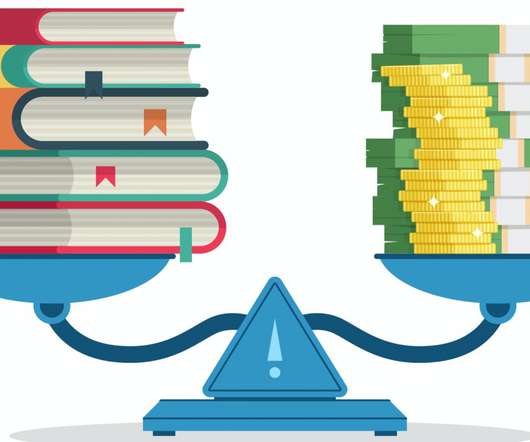What’s the Right Price for an Online Degree?
Edsurge
JULY 23, 2021
A study conducted by WECT before the pandemic found that only about 20 percent of colleges they surveyed charged less tuition and lower fees than they do to those who study in person. The survey also uncovered another revelation: online fees added to tuition can be so large that they are greater than tuition alone.
















Let's personalize your content